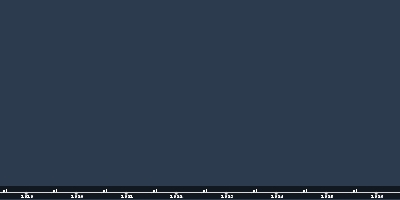US occupies Haiti (1 gen 1915 anni – 1 gen 1934 anni)
Descrizione:
dollar diplomacy: The use of American foreign policy to stabilize the economies of foreign nations, especially in the Caribbean and South America, in order to benefit American commercial interests, between World War I and the early 1930s.The ascendancy of business in the 1920s shaped the nation’s international outlook as well. As before the war, Latin America remained the focus of U.S. foreign policy. Under a presidential initiative launched by William Howard Taft and continued under Wilson and other presidents in the years after World War I, the State Department worked to advance U.S. business interests abroad, especially by encouraging private banks to make foreign loans in the Caribbean and South America. Policymakers hoped loans would stimulate growth in developing markets and thus increase demand for U.S. products.
Bankers, for their part, wanted government guarantees of repayment in countries they perceived as weak or unstable. Officials readily provided such assurance. In 1922, for example, when American banks offered an immense loan to Bolivia, State Department officials pressured the South American nation to accept it. A similar arrangement was reached with El Salvador’s government in 1923. In other cases, the United States intervened militarily, often to force repayment of debt. The U.S. Marines occupied Nicaragua almost continuously from 1912 to 1933, the Dominican Republic from 1916 to 1924, and Haiti from 1915 to 1934. These forays were often justified through demeaning racial logic. Haitians were characterized as primitive savages or childlike people who needed U.S. guidance and supervision. One commander testified that his troops saw themselves as “trustees of a huge estate that belonged to minors…. The Haitians were our wards.”
At home, critics denounced loan guarantees and military interventions as dollar diplomacy — a foreign policy intended to stabilize the economies of foreign nations to benefit American commercial interests. The term was coined in 1924 by Samuel Guy Inman, a Disciples of Christ missionary who toured U.S.-occupied Haiti and the Dominican Republic. “The United States,” Inman declared, “cannot go on destroying with impunity the sovereignty of other peoples, however weak.” African American leaders also denounced the Haitian occupation. On behalf of the International Council of Women of the Darker Races and the Women’s International League for Peace and Freedom, a delegation conducted a fact-finding tour of Haiti in 1926. Their report exposed, among other things, the sexual exploitation of Haitian women by U.S. soldiers.
Dollar diplomacy was on the defensive by the late 1920s, as its poor results spoke for themselves. Loans were repaid, securing bankers’ profits, but the money more often wound up in the pockets of local elites, rather than creating markets for American exports. Military intervention had even worse results. In Haiti, for example, the marines crushed peasant protests and helped the local elite consolidate power, contributing to the rise of harsh dictatorships there. In 1933, President Roosevelt initiated the “Good Neighbor” policy with respect to Latin America — in which the U.S. pledged not to intervene in the internal affairs of countries there and to pursue reciprocal trade agreements instead — in an effort to reverse these ill effects.
While the Western Hemisphere dominated the American international outlook after World War I, many diplomats considered East Asia more important in the long run. To ease growing tensions there, the United States joined Japan, Great Britain, and France in a major naval arms limitation treaty in 1922. The so-called Four-Powers Treaty limited naval strength in the Pacific to existing levels, but stoked Japanese resentment because the status quo guaranteed Western military superiority over Japan’s smaller navy. That island nation would gradually come to see the United States, not European colonial powers, as its principal adversary for dominance in Asia
Aggiunto al nastro di tempo:
Data:
1 gen 1915 anni
1 gen 1934 anni
~ 19 years
